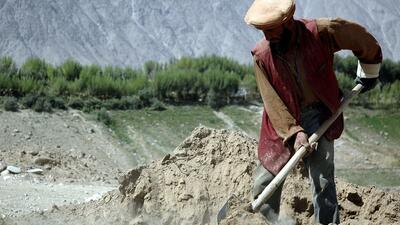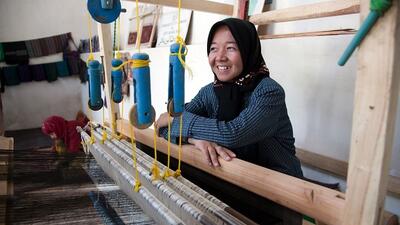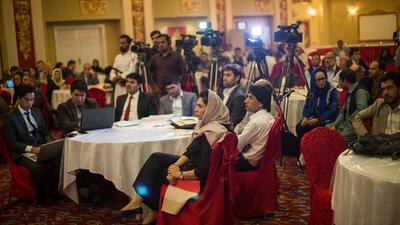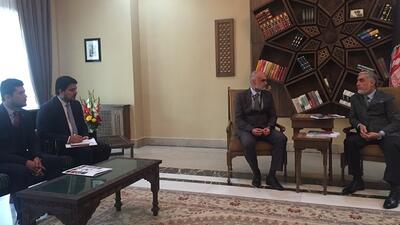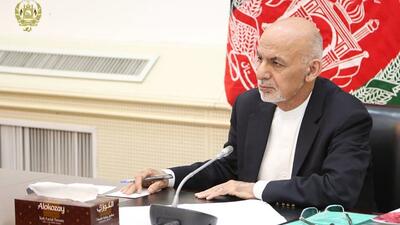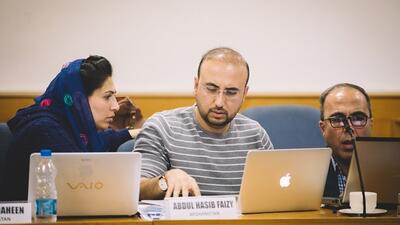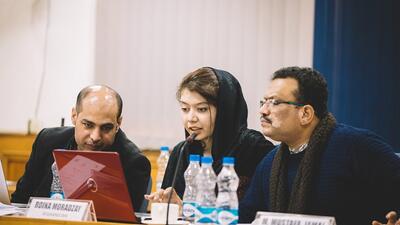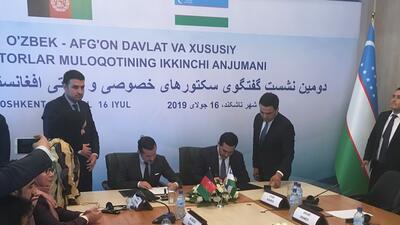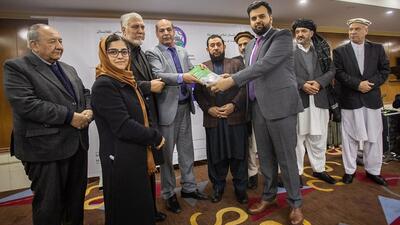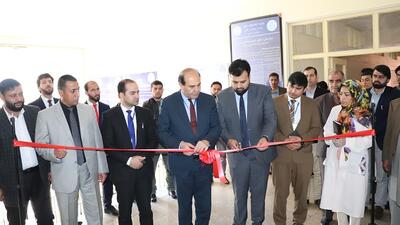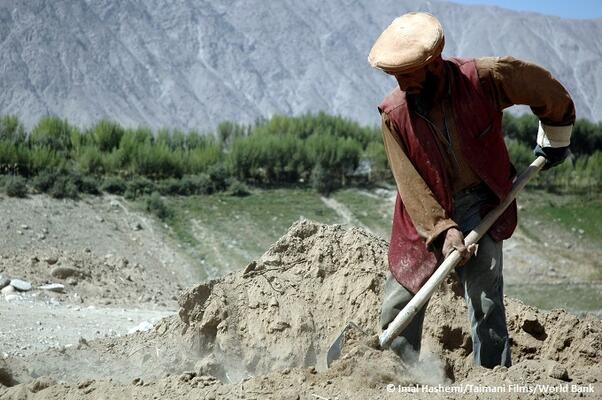
Afghanistan starts work on National Export Strategy
(Kabul-Geneva) – Afghanistan today took its first steps towards the creation of a National Export Strategy (NES) that will set out its trade priorities. More than 100 representatives from the public and private sector are meeting in Kabul for a two-day meeting to explore challenges and opportunities for improving Afghanistan’s trade performance.
The National Export Strategy should detail a series of investments needed to unleash export growth and job creation in sectors with high trade potential, detailed five-year action plan, and an integrated implementation management framework.
Organized by the Ministry of Commerce and Industries (MOCI) and the International Trade Centre (ITC), the first consultation on Afghanistan’s National Export Strategy provided an opportunity for participants to share their views on issues such as value-chain improvements, supply capacities, competitiveness and quality management. Central to the discussions were also the entry into force of the World Trade Organization’s Trade Facilitation Agreement, which Afghanistan ratified immediately upon joining the trade body in July 2016.
A central component of the Trade for Economic Growth and Regional Cooperation a trade-related support programme to Afghanistan funded by the European Union and implemented by ITC in support of MOCI, the National Export Strategy will align with the priorities and development goals established by the Afghan government. It will have a particular focus on socio-economic growth, private-sector development, investment promotion, investor protection, and economic diversification. The final Strategy will also adhere with the principles and instruments of the New Development Planning System that has been established by the Afghan Government as part of the Afghanistan National Peace and Development Framework (ANPDF).
Afghanistan’s Minister for Commerce and Industry Humyoon Rasaw said: ‘The first NES consultation will capture a comprehensive picture of the current business environment in Afghanistan. This will assist in the development of an effective export strategy, ultimately allowing Afghanistan to expand export earnings, enhance trade competitiveness and to achieve greater economic diversification.’
ITC Executive Director Arancha Gonzalez said: ‘Entry into the WTO will make predictable and open trade possible for Afghanistan. The National Export Strategy is a good next step in making trade happen. The Strategy will provide a guiding compass for a series of strategic actions including investments, value-chain development, institutional support mechanisms, and improvement of Afghanistan’s regulatory environment.’
Franz-Michael Skjold Mellbin, Ambassador of the European Union to Afghanistan, said: ‘Moving forward the private sector development agenda must be a priority for Afghanistan if it wants to shift from aid dependency towards sustainable growth and job creation.
The National Export Strategy will guide Afghanistan's efforts to realize the potential of its exports sector as an important driver for economic growth. Urgent credible reforms and strong government engagement with the private sector are required to support the enabling environment for business in areas such as licensing - cutting red tape, access to finance, energy and markets, transport, connectivity and agricultural productivity, as well as a fair taxation system that allows SMEs to prosper.’
Atiqullah Nusrat, Chief Executive Officer of the Afghan Chamber of Commerce and Industry (ACCI), said: ‘The development of a National Export Strategy for Afghanistan is a high priority item that is foreseen to stimulate the growth of the private sector in addition to providing a high degree of mobility and stability. This is especially relevant in the context of a landlocked environment, with a volatile economy that has stagnated and a trade balance that involves 95-5 imports-exports ratio. It is a much appreciated and timely endeavour that is fully supported by the ACCI.’
A second participatory consultation to be held in May 2017 will analyse priority sectors and support functions such as access to finance and skills development, which will form the core of the National Export Strategy.
Trade for Economic Growth and Regional Cooperation project is funded by the European Union and implemented by the International Trade Centre under the leadership of Ministry of Commerce and Industries (MOCI).
The intervention is recognition of ongoing efforts by the Afghan government to use trade as driver of economic growth, regional cooperation and stability. Afghanistan acceded to the World Trade Organization (WTO) in July 2016 and has placed trade and regional economic cooperation at the heart of its development strategy. Its first action after acceding to the WTO was to ratify the body’s Trade Facilitation Agreement.
To ensure sustainability, local ownership and long-term impact of the project, ITC will be working with a range of partners from the private sector, non-governmental organizations, academia and civil-society organizations based in Afghanistan.
About ITC – ITC is the joint agency of the World Trade Organization and the United Nations. ITC assists small and medium-sized enterprises in developing and transition economies to become more competitive in global markets, thereby contributing to sustainable economic development within the frameworks of the Aid-for-Trade agenda and the United Nations’ Sustainable Development Goals. For more information, visit www.intracen.org. Follow ITC on Twitter: @ITCnews
For more information, please contact:
International Trade Centre
Jarle Hetland
Media Officer
Office of the Executive Director
P: + 41 22 730 0145
M: + 41 79 582 9180
E: hetland [at] intracen.org (hetland[at]intracen[dot]org )
EU Media Adviser
Abdullah Yadgare
M: +93 (0) 700 17 35 48
E: abdullah.yadgare [at] eeas.europa.eu (abdullah[dot]yadgare[at]eeas[dot]europa[dot]eu)
To read the translated version in Urdu and Pashto please click on the link.




